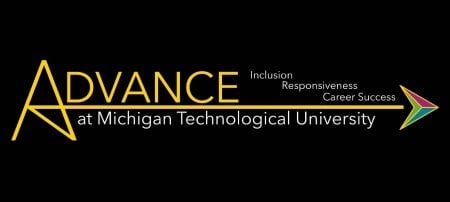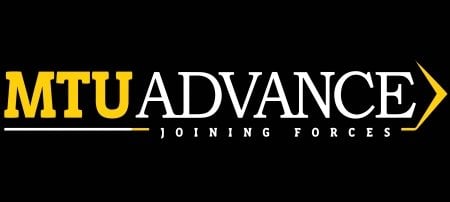Michigan Tech is an ADVANCE Institution and is proud to have thrice received National Science Foundation (NSF) support for these campus initiatives.
Michigan Tech has been awarded three ADVANCE grants by the NSF since 2008.
Learn more about the ADVANCE leadership team.
Numerous publications and presentations have resulted from the ADVANCE Initiatives at Michigan Tech.
Recent Michigan Tech ADVANCE Awards
ADVANCE Adaptation—AMP-UP Continuous Improvement Process to Transform Institutional Practices and Culture
Funding Agency: National Science Foundation, HRD 1760585
Principal Investigator: Adrienne Minerick
Co-PIs: Sonia Goltz, Andrew Storer, Patricia Sotirin
Award Amount: $1,000,000
Project Dates: 9/1/18- 8/31/23
ADVANCE Partnership—Joining forces - A Midwestern Partnership for STEM Faculty Success
Funding Agency: National Science Foundation, HRD 1935932
Partnership Team: Cinzia Cervato (Iowa State University), Carla Koretsky (Western Michigan University),
Canan Bilen-Green (North Dakota State University), Adrienne Minerick (Michigan Technological
University).
Award Amount: $1,000,000
Michigan Tech Subaward: $170,000
Michigan Tech Team: Adrienne Minerick, Sonia Goltz, Patricia Sotirin
Project Dates: 9/1/19-9/30/24




